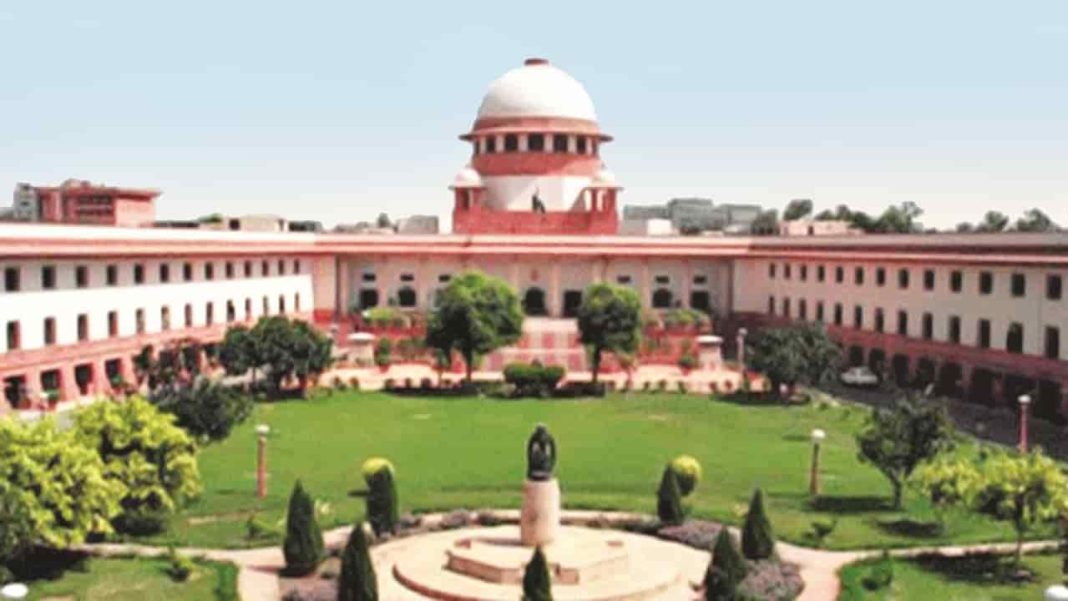The Supreme Court on August 28 upheld the constitutional validity of self-respect marriages. It overruled a Madras High Court verdict which said that marriages performed in the offices of advocates were not valid as per the Hindu Marriage Act, 1955.
The apex court bench of Justice S Ravindra Bhat and Justice Aravind Kumar, while considering the special leave petition, upheld the fundamental right of a person to choose a life partner. The case pertained to the self-marriage system as per Section 7A, which was inserted in the Hindu Marriage Act by a Tamil Nadu amendment. It read:
“7A. Special provision regarding suyamariyathai and seerthiruththa marriages.
(1) This section shall apply to any marriage between any two Hindus, whether called suyamariyathai marriage or seerthiruththa marriage or by any other name, solemnized in the presence of relatives, friends or other persons—
(a) by each party to the marriage declaring in any language understood by the parties that each takes the other to be his wife or, as the case may be, her husband; or
(b) by each party to the marriage garlanding the other or putting a ring upon any finger of the other; or
(c) by the tying of the thali.
(2) (a) Notwithstanding anything contained in Section 7, but subject to the other provisions of this Act, all marriages to which this Section applies solemnized after the commencement of the Hindu Marriage [Tamil Nadu] Amendment) Act, 1967, shall be good and valid in law.”
As per Section 7A of the Act, two Hindus can marry without following rituals or without solemnisation by a priest by declaring the marriage in the presence of their friends or relatives or other persons. However, a bench of the Madras High Court, while hearing S. Balakrishnan Pandiyan vs The Superintendent of Police, Kanchipuram District and others, ruled in 2014 that marriages performed by advocates were not valid and that Suyamariyathai marriage (self-respect marriage) could not be solemnised in secrecy.
The Court held: “Our declaration of law that, marriages performed in secrecy in the Office of Advocates and Bar Association Rooms cannot amount to solemnisation within the meaning of Sections 7 and 7-A of the Hindu Marriage Act, cannot be used as a sword by the males for cutting the nuptial knot in matrimonial proceedings, but can be used only by the fair sex to get liberated from sham marriages of this nature. We also hold that the Certificate of Solemnisation issued by Advocates will not be per se proof of Solemnisation of Marriage in a matrimonial dispute.”
The Court said there was no scope for the presence of a lawyer-cum-priest for effecting registration of a marriage. When the Registrar entertains any doubt with regard to the performance of the marriage, he may call upon the parties to produce further information to satisfy himself and only at that juncture, the necessity of a priest to appear before the Registrar may arise, not otherwise. Therefore, the Court did not approve of advocates appearing before the Registrar and presenting the Memorandum of Registration for that would lower the dignity of the Bar in the eyes of the public.
On the basis of this verdict, the High Court of Madras in Ilavarsan vs The Superintendent of Police and Others on May 5, 2023, refused to rely on a marriage certificate issued by an advocate and dismissed a habeas corpus petition filed by a man who alleged that his partner was under illegal detention of her parents. The High Court further directed that the Bar Council should initiate disciplinary action against advocates who issue such “fake” marriage certificates. Aggrieved by this judgment, the petitioner approached the Supreme Court.
The apex court disagreed with the view expressed in the Balakrishnan Pandiyan case. The bench noted that Section 7A was upheld by it in Nagalingam vs Shivgami (2001). It further observed that the view in Pandiyan was based on an assumption that every marriage required a public solemnisation or declaration. It said that couples intending to marry may refrain from making a public declaration due to various reasons such as familial opposition or fear for their safety. In such cases, enforcing a public declaration could put lives at risk and potentially result in forced separation.
It said the view expressed by the Madras High Court in Balakrishnan Pandiyan was erroneous and was based on the assumption that each marriage required a public solemnisation or declaration. It said that such a view was rather simplistic because often due to parental pressure, couples intending to enter into matrimony may give a public declaration and thereby imperil their lives.
—By Shivam Sharma and India Legal Bureau


